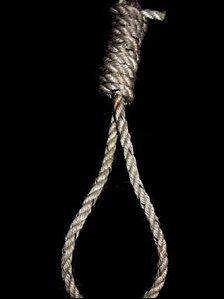Should India abolish the death penalty?
- Published
- comments

India allows the death penalty for the 'rarest of rare' crimes
Should India abolish the death penalty?
The Supreme Court's decision to uphold the death penalty of Pakistani national Mohammad Ajmal Amir Qasab, the sole surviving gunman of the 2008 attacks on Mumbai, has opened the debate once again.
Predictably, the main opposition Bharatiya Janata Party (BJP) has been quick to demand Qasab's swift execution "as those who wage war against the country and kill innocents deserve no mercy".
Qasab can still appeal to the highest court to review the verdict; and his last hope lies with a plea for clemency to the president.
His appalling crime of gunning down innocents surely qualifies as a "rarest of the rare crime", a condition for handing out the death penalty in India.
But, as critics of capital punishment say, there's no evidence to show that the death penalty deters crime.
Two-thirds of the world's countries have done away with the death penalty in law or in practice. Last year, according to Amnesty International, external, death sentences were imposed in 63 countries, but only 21 countries actually carried out executions.
India has shied away from executing people for many years now.
There have been only two hangings in the country in the past 12 years and the majority of convicts on death row can expect their sentences to be commuted to life. Former president Pratibha Patil commuted the death sentences of 35 convicts, external midway through her five-year term.
Clemency pleas, external of 29 prisoners on death row in India are pending before the president. They include Afzal Guru, who was convicted for carrying out an attack on the Indian parliament in December 2001. The Supreme Court upheld his death sentence as long ago as 2004.
Then there is a serious practical problem: there are only one or two hangmen available in India. Two years ago, I met one in a Calcutta prison, external who had been employed as a hangman-cum-sweeper, and was still waiting to carry out his first execution.
Recently, 14 retired Indian judges wrote to the president asking him to commute the death sentences of 13 inmates being held in prisons across the country. And the Supreme Court itself recently admitted that some death penalties it had upheld were erroneous.
"Public opinion in India can no longer ignore the global movement in favour of abolition of the death penalty," says AP Shah, the former chief justice of the Delhi High Court in an interview, external in today's The Times of India.
What do you think?